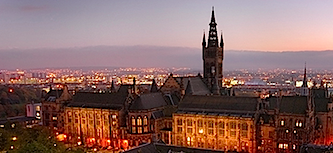Glasgow City Council has voted to approve planning permission in principle for the University of Glasgow’s £1 billion campus masterplan to transform the west end of the city by developing the site of the former Western Infirmary.
The university said the masterplan will bring significant community, economic, environmental and cultural benefits and create up to 3,000 jobs.
It said a number of conditions are attached to the planning application covering the replacement of trees, landscaping and the retail mix on the site.
The university’s principal and vice-chancellor Professor Anton Muscatelli, said: “We are delighted that Glasgow City Council has endorsed our ambitious plan which we believe will be a major economic driver for the city and for Scotland as well as underpin this university’s world-leading position.
“The decision to approve the masterplan is pivotal to allowing us to start this development.
“An initial financial envelope of around £430 million will be spent over the next five years on the first phase of the project.
“It is part of a wider £1 billion investment which includes significant spend on refurbishing and improving the existing estate.
“This will be one of the biggest educational infrastructure projects in Scotland’s history and is certainly the biggest development undertaken by this University since it moved to Gilmorehill 150 years ago.
“We are very aware that whilst we undertake this scale of construction that we must minimise disruption to both the university community and the west end and the university will work closely with community groups to ensure we respect those living and working in the area.”
This first phase of the development will see the clearance of the Western Infirmary Site, new public landscaping and construction of the following new buildings:
- A learning and teaching hub
- A research hub
- An Institute of Health and Wellbeing
- Adam Smith Business School
- A base for the College of Arts
- Significant upgrade of chemistry building — the Joseph Black Building
The second phase, expected to start in 2023, will deliver:
- New teaching and research space for engineering
- An Innovation Quarter on Church Street to improve engagement with local industry and promote creation of new companies
- A building for research into chronic diseases
- The creation of a Social Justice Hub
